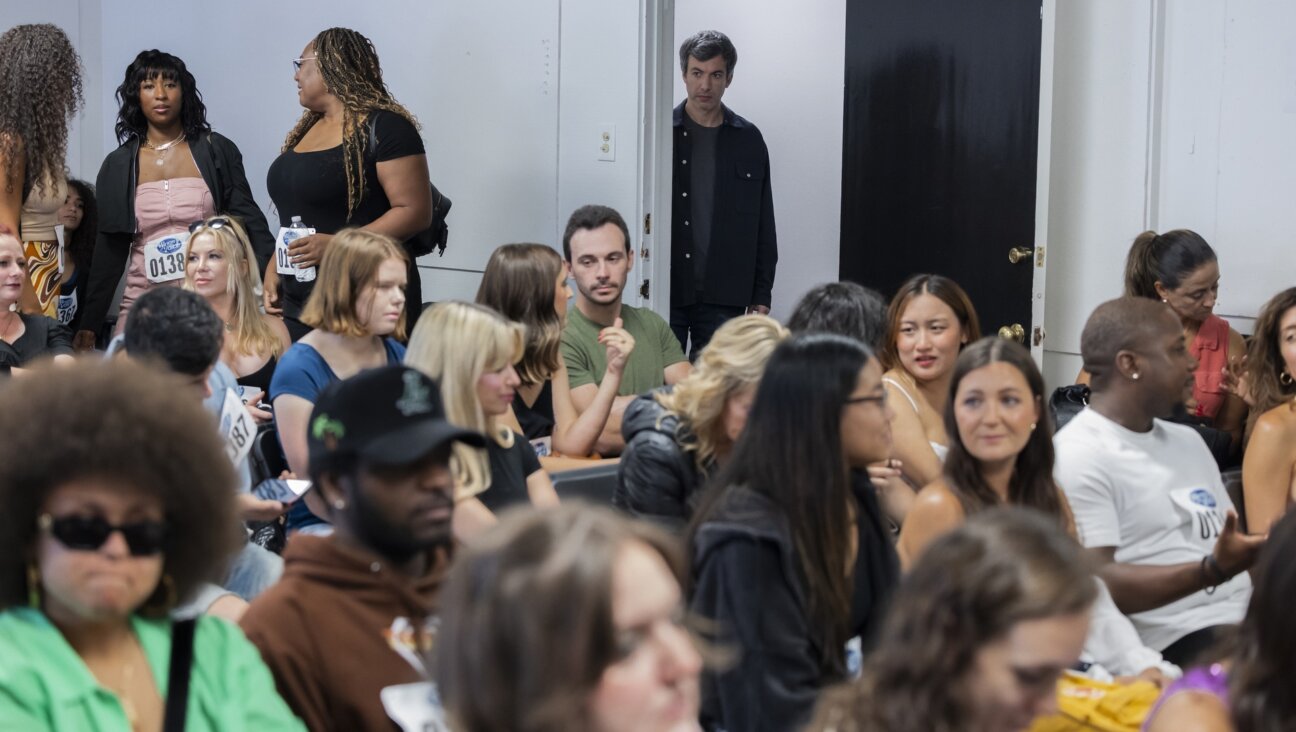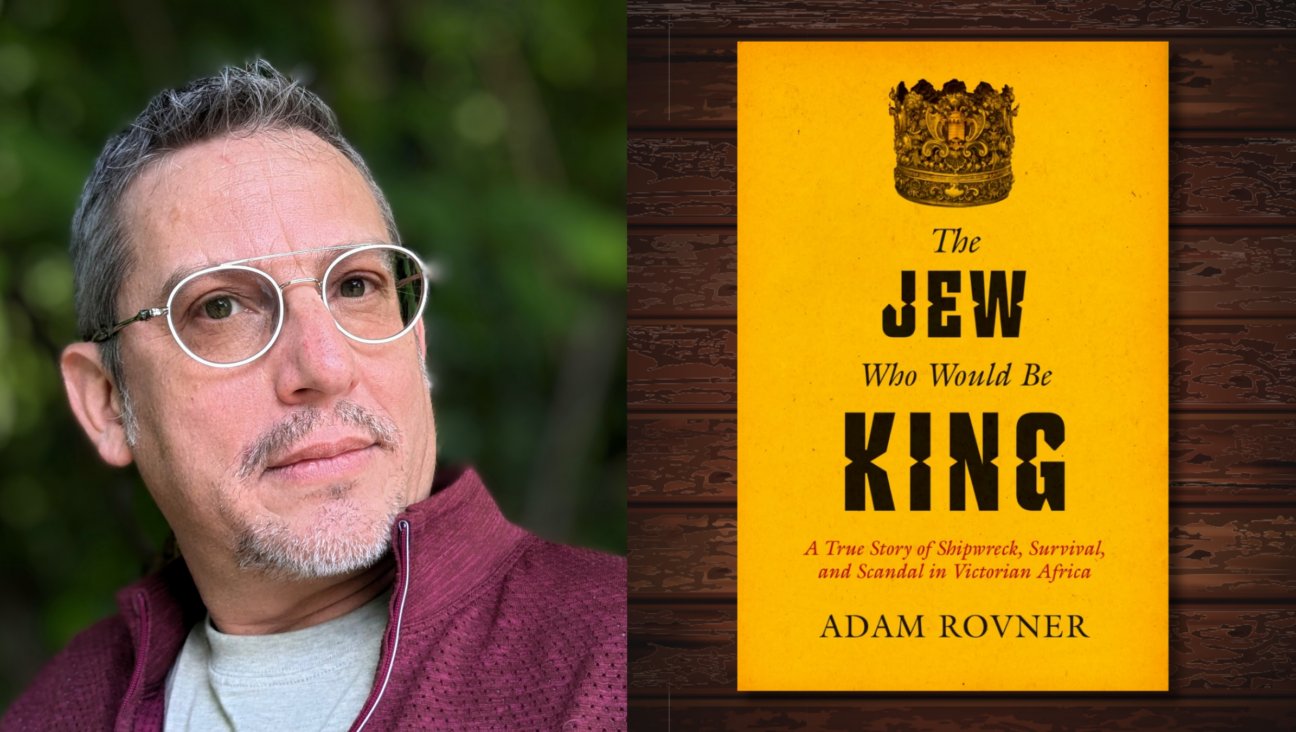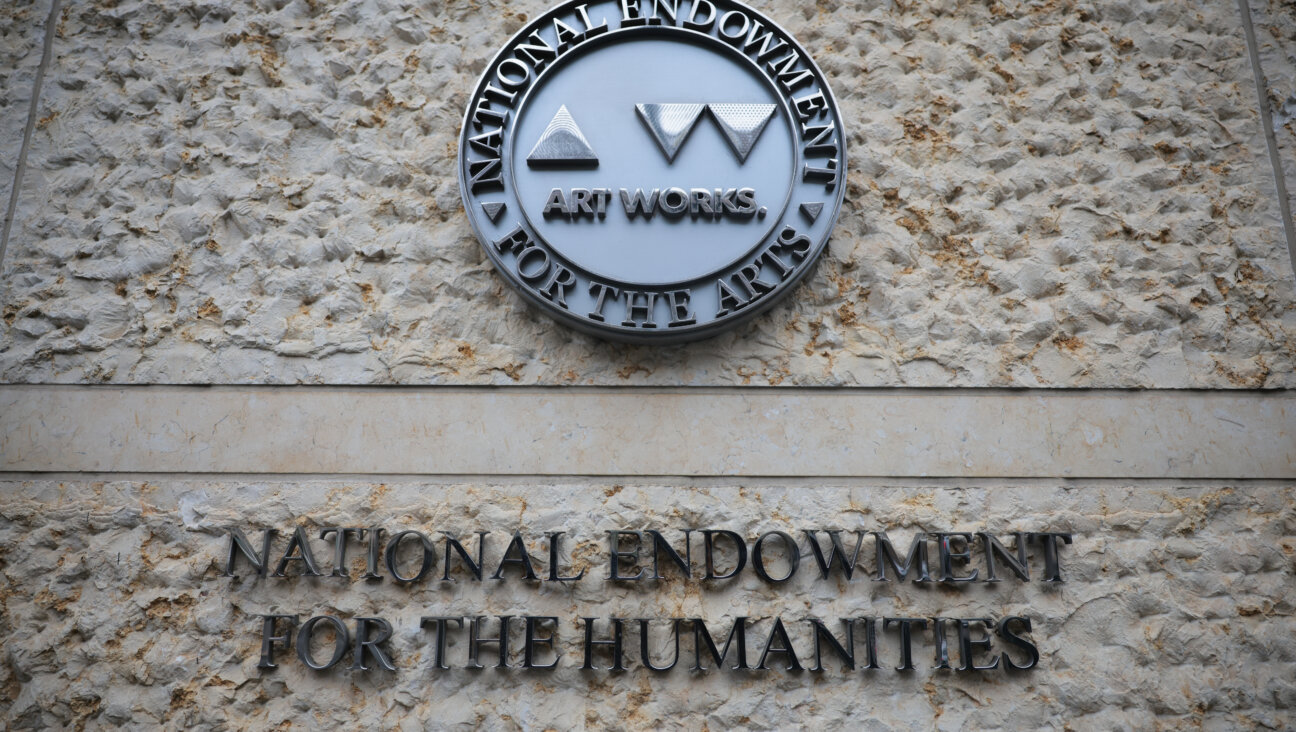Sovereign or Beast?

What Is Enlightenment?: French philosopher Jacques Derrida poses at home in Ris-Orangis, near Paris, in January 2001. Image by GETTY IMAGES
French-Jewish philosopher Jacques Derrida, who was the dean of deconstruction and died in 2004 at age 74, still divides opinions dramatically. On October 26, Yale University Press issued in paperback David Mikics’s 2009 “Who Was Jacques Derrida?: An Intellectual Biography,” a concise study that does not fully answer the question in its title, but seeks a middle path between the “intense celebration and intense scorn” that Derrida inspired when he was alive. His actor-like stage presence, akin to that of Robert Blake when young and Peter Falk when older, eventually made Derrida a natural media celebrity, a role that he acceded to good-naturedly, no matter how clueless the chat show host he might be confronting. Yet the combination of exceedingly abstruse writings and ultra-accessibility to world media made Derrida look suspect to many, especially in his homeland.
In France, where Derrida was always less celebrated than in the United States and elsewhere, new titles continue to pour forth from Derrida’s longtime publisher, Les Éditions Galilée. The publisher has launched a series of first-ever publications of Derrida’s seminars, beginning with a 2002–2003 series of lectures, “La Bête et le Souverain” (“The Beast and The Sovereign”), exploring notions about animal life and nation-states. The first volume appeared last year in translation by Derrida’s friend and colleague, Geoffrey Bennington from University of Chicago Press, as “The Beast and the Sovereign, Volume I.”
Even readers who do not see Derrida as a sovereign of thought will be fascinated by a vast, detailed new biography, “Derrida,” by Benoît Peeters and published by Les Éditions Flammarion. Peeters has taken his task seriously and methodically, simultaneously publishing a memoir in diary form, “Three Years With Derrida: A Biographer’s Notebook” (“Trois Ans Avec Derrida: Les Carnets d’un Biographe”), which, also from Flammarion, is of more interest to future biographers of Peeters than to Derrida aficionados. Yet the latter will be gratified by the patient research that fills the 700-plus pages of “Derrida,” research that goes a long way to respond to some of Derrida’s harshest critics.
One such, Ruth Barcan Marcus of Yale University, was among the eminent thinkers (alongside Willard Quine, René Thom and John Searle) who scorned Derrida for “translating into the academic sphere tricks and gimmicks similar to those of the Dadaists or of the concrete poets,” as claimed in a co-signed letter protesting a 1992 Cambridge University honorary doctorate awarded to Derrida. The misleadingly named concept of “deconstruction” asserts that writers cannot fully control their word choices and therefore they undermine their own texts. The very term implies a critical tearing down, whereas Derrida suggested that self-demolition of a literary work is an inherent part of writing. Many critics were troubled by Derrida’s repeated coining of new words as a seemingly humorless epigone of James Joyce, in order to convey that words themselves cannot express ideas, since words always refer to other words instead of to such time-honored concepts as knowledge, truth and meaning. In the eyes of detractors, Derrida thereby undermined the legacy of philosophers past and present.
In 1991, Richard Wolin of the CUNY Graduate Center charged that Derrida’s writings lead to “nihilism,” which threatens to “efface many of the essential differences between Nazism and non-Nazism.” Peeter’s “Derrida” counters that the philosopher’s experiences as an Algerian-born French Jew were formative and of lifelong importance. Derrida certainly knew the difference between “Nazism and non-Nazism,” after his experiences in 1942, which he termed a personal “earthquake.” In that year, Algerian authorities expelled Derrida (and fellow Jews) from public schools, in addition to enacting a farrago of other anti-Semitic laws. Only after De Gaulle’s Free French forces conquered Algeria were Jewish students allowed to return to class, but this social and intellectual exclusion by the collaborators galled Derrida permanently. He would later repeat that at the time, “there were no Germans in Algeria.” French-Algerian administrators launched these anti-Semitic measures following the collaborationist Vichy regime, above and beyond what Nazis were requesting of occupied France. The way in which the supposedly rock-solid French lycée system betrayed 12-year-old Derrida must have foreshadowed how the presumably concrete entity of philosophical tradition might likewise crumble.
This cataclysmic betrayal was echoed in 1982, when Derrida was an established philosopher, although not yet the international superstar he would later become. That year, as part of a group that advocated freedom of expression, Derrida traveled to Communist Prague, where he was arrested, strip-searched, garbed in a prison uniform and thrown into jail on a trumped-up charge of drug smuggling. The trauma of this brutal episode further marked Derrida.
Born Jackie Derrida (named after silent-screen child star Jackie Coogan from Chaplin’s “The Kid”) in El-Biar, a Jewish suburb of Algiers, the youngster relished the Sephardic music he heard at the local synagogue, but loathed the “racist violence” he saw at school: “Anti-Arab, anti-Semitic, anti-Italian, anti-Spanish, there was everything!” he would later recall.
In 1949, he arrived in Paris for further studies at the École Normale Supérieure, only to discover a different form of the same old anti-Semitism. At the bourgeois home of a classmate, one parent informed Derrida at dinner that she could “smell Jews at a distance,” to which Derrida retorted: “Really, Madame? It happens that I am Jewish!” He later wrote to his host that “French anti-Semites are only anti-Semitic with Jews whom they do not know personally,” adding later, to another friend, “As soon as an anti-Semite is intelligent, he no longer believes in his anti-Semitism.”
Thus acutely aware of his ethnic identity, Derrida devoted early writings to such subjects as the Jewish authors Edmond Jabès and Emmanuel Levinas (and fellow Jews), both later collected in 1967’s landmark “Writing and Difference,” and in other works. While Jabès appreciated Derrida’s analyses, Levinas had a more nuanced response, and another subject of Derrida’s scrutiny, Claude Lévi-Strauss, dismissed Derrida’s writings as “philosophical farce.”
Despite such objections, Derrida was always surrounded by ardently supportive Jewish friends and colleagues, like Sarah Kofman, Peter Szondi, Hélène Cixous and Avital Ronell. The last mentioned was so devoted to the Derrida family that in 1979, at age 28, Ronell began a love affair with Derrida’s then-16-year-old son, Pierre, under the tolerant eye of his parents, Peeters reveals. Excessive tolerance would cause Derrida much grief in 1987, when he defended his late friend, Belgian critic Paul de Man, after it was posthumously revealed that de Man had written anti-Semitic articles for the collaborationist press of his homeland during World War II.
Derrida’s refusal to condemn de Man cost him much prestige, and even today rankles some observers. Derrida, likewise, did not abandon another friend, Louis Althusser, even after 1980, when the latter, in a fit of madness, strangled Mrs. Althusser, Jewish sociologist Hélène Rytmann. Abundant details provided by Peeters prove Derrida’s lasting devotion to Yiddishkeit; even after receiving a fatal diagnosis of pancreatic cancer in 2003, Derrida insisted on delaying medical treatment so as not to cancel a scheduled appearance in Israel and disappoint his hosts. When Derrida was buried, his elder brother, René, wore a tallit at the suburban French cemetery and recited the Kaddish to himself inwardly, since Jacques had asked for no public prayers. This discreet, highly personal, yet emotionally and spiritually meaningful approach to recognizing Derrida’s Judaism seems emblematic of this complex, imperfect, yet valuably nuanced thinker.
To see Jacques Derrida recount his 1982 arrest and imprisonment in Prague, click here and here.
And at 5:05 of this video, see a South African TV interviewer ask Derrida in 1998 whether the TV sitcom “Seinfeld” is an example of Deconstruction.
Benjamin Ivry is a frequent contributor to the Forward.
The Forward is free to read, but it isn’t free to produce

I hope you appreciated this article. Before you go, I’d like to ask you to please support the Forward.
Now more than ever, American Jews need independent news they can trust, with reporting driven by truth, not ideology. We serve you, not any ideological agenda.
At a time when other newsrooms are closing or cutting back, the Forward has removed its paywall and invested additional resources to report on the ground from Israel and around the U.S. on the impact of the war, rising antisemitism and polarized discourse.
This is a great time to support independent Jewish journalism you rely on. Make a Passover gift today!
— Rachel Fishman Feddersen, Publisher and CEO
Most Popular
- 1

Opinion My Jewish moms group ousted me because I work for J Street. Is this what communal life has come to?
- 2

News Student protesters being deported are not ‘martyrs and heroes,’ says former antisemitism envoy
- 3

Fast Forward Suspected arsonist intended to beat Gov. Josh Shapiro with a sledgehammer, investigators say
- 4

Politics Meet America’s potential first Jewish second family: Josh Shapiro, Lori, and their 4 kids
In Case You Missed It
-
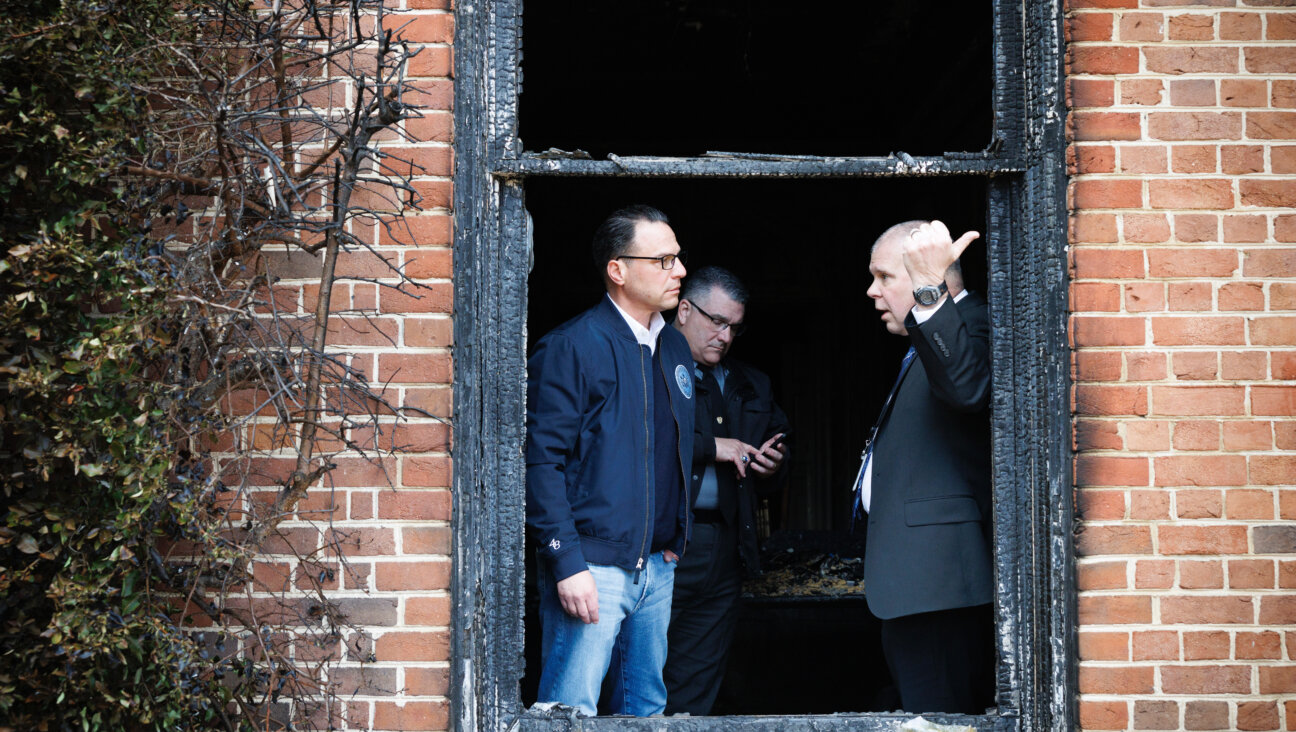
Fast Forward Arson suspect attacked Shapiro over pro-Israel stances, search warrant says
-

Fast Forward Jewish family killed in New York plane crash
-

Fast Forward Israelis can no longer enter the Maldives after Palestinian-solidarity ban goes into effect
-
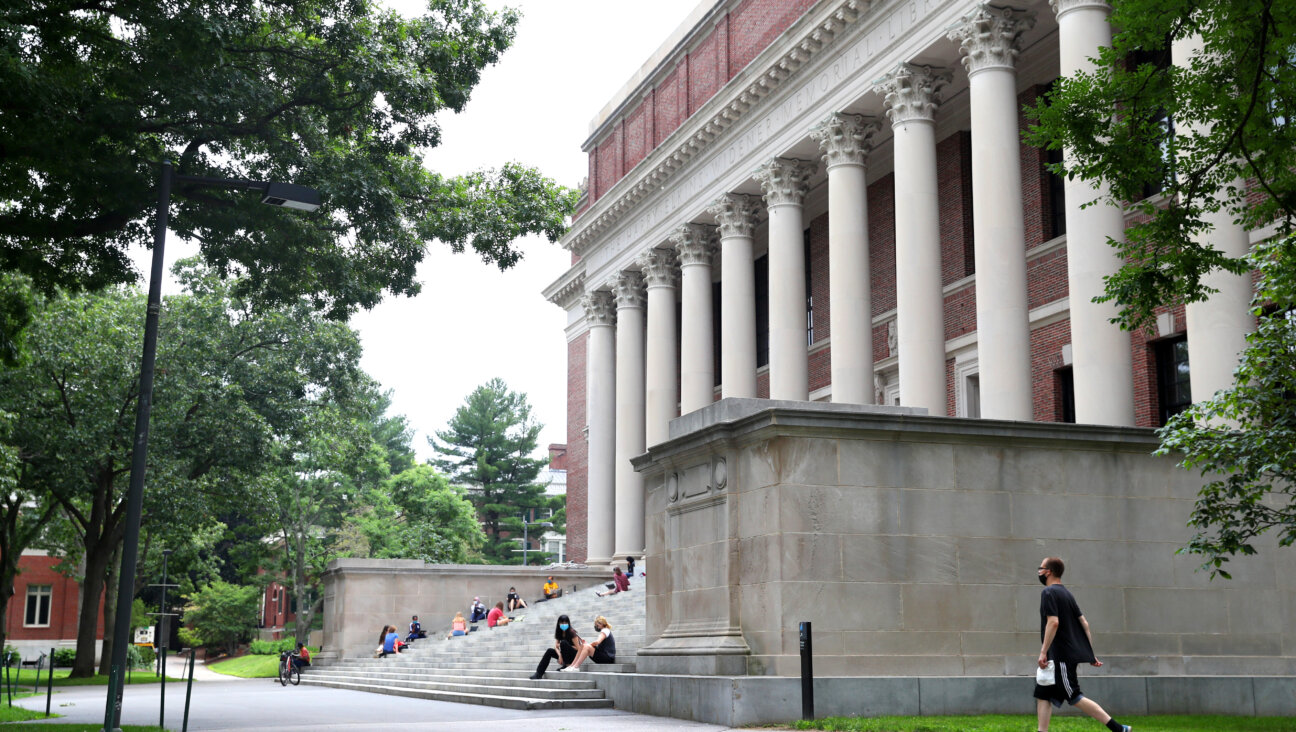
News Harvard is defying the Trump administration — after its own crackdown on academic freedom
-
Shop the Forward Store
100% of profits support our journalism
Republish This Story
Please read before republishing
We’re happy to make this story available to republish for free, unless it originated with JTA, Haaretz or another publication (as indicated on the article) and as long as you follow our guidelines.
You must comply with the following:
- Credit the Forward
- Retain our pixel
- Preserve our canonical link in Google search
- Add a noindex tag in Google search
See our full guidelines for more information, and this guide for detail about canonical URLs.
To republish, copy the HTML by clicking on the yellow button to the right; it includes our tracking pixel, all paragraph styles and hyperlinks, the author byline and credit to the Forward. It does not include images; to avoid copyright violations, you must add them manually, following our guidelines. Please email us at [email protected], subject line “republish,” with any questions or to let us know what stories you’re picking up.









